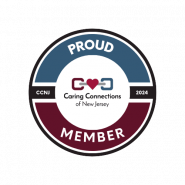Caring for a loved one with dementia can be both rewarding and challenging. As dementia progresses, it affects memory, behavior, and daily functioning, requiring caregivers to adapt and find new ways to provide support. By understanding the condition, creating a safe and structured environment, and seeking available resources, caregivers can enhance their loved one’s quality of life while also taking care of their own well-being.
Understanding Dementia
Dementia is a progressive condition that affects memory, thinking, and behavior. It can be challenging to care for a loved one with dementia, but understanding the condition and its symptoms can help. Educate yourself about dementia to better understand what your loved one is experiencing and how you can best support them.
Creating a Safe Environment
Creating a safe environment is essential when caring for someone with dementia. Remove hazards such as rugs that can cause tripping, install grab bars in the bathroom, and ensure that the home is well-lit to prevent falls. You may also need to consider installing locks on cabinets containing dangerous items.
Establishing Routine and Structure
Individuals with dementia often benefit from having a routine and structure in their day-to-day lives. Establishing regular mealtimes, bedtime routines, and daily activities can help reduce confusion and agitation.
Seeking Support
Caring for a loved one with dementia can be emotionally and physically taxing. It’s important to seek support from friends, family, and healthcare professionals. Joining a support group for caregivers of individuals with dementia can also provide valuable insights and coping strategies.
Utilizing Available Resources
There are many resources available to help caregivers of individuals with dementia. These include respite care services, which can provide temporary relief for caregivers, as well as counseling and support groups. Additionally, organizations such as the Alzheimer’s Association offer educational materials and online resources for caregivers.
By educating yourself about the condition, creating a safe and structured environment, and utilizing available resources, you can provide the care your loved one needs while managing the challenges that come with this role. Remember that seeking help, whether from support groups or respite care services, is essential for maintaining your own health and well-being as a caregiver. With the right strategies and resources, you can make a meaningful difference in your loved one’s life.



